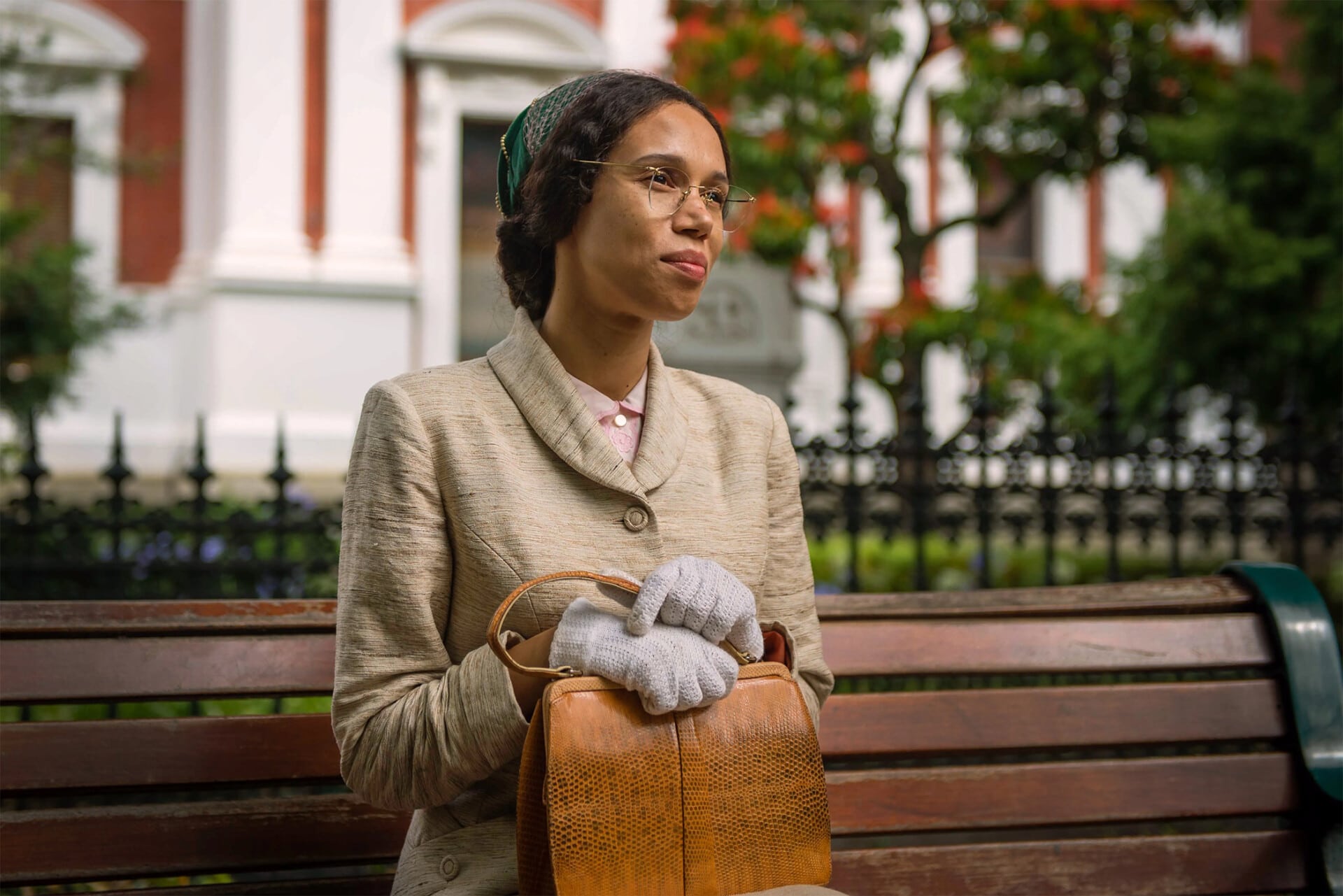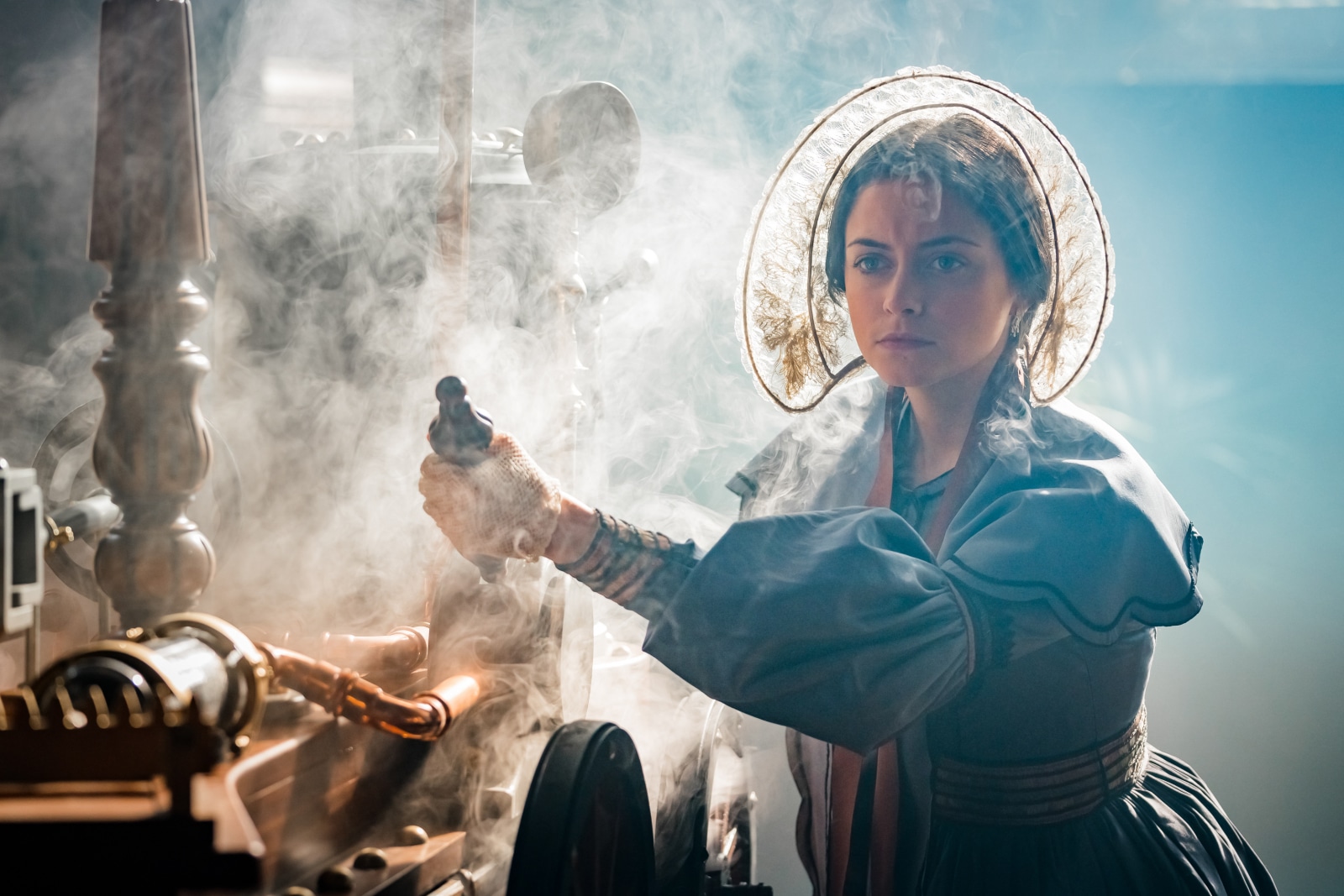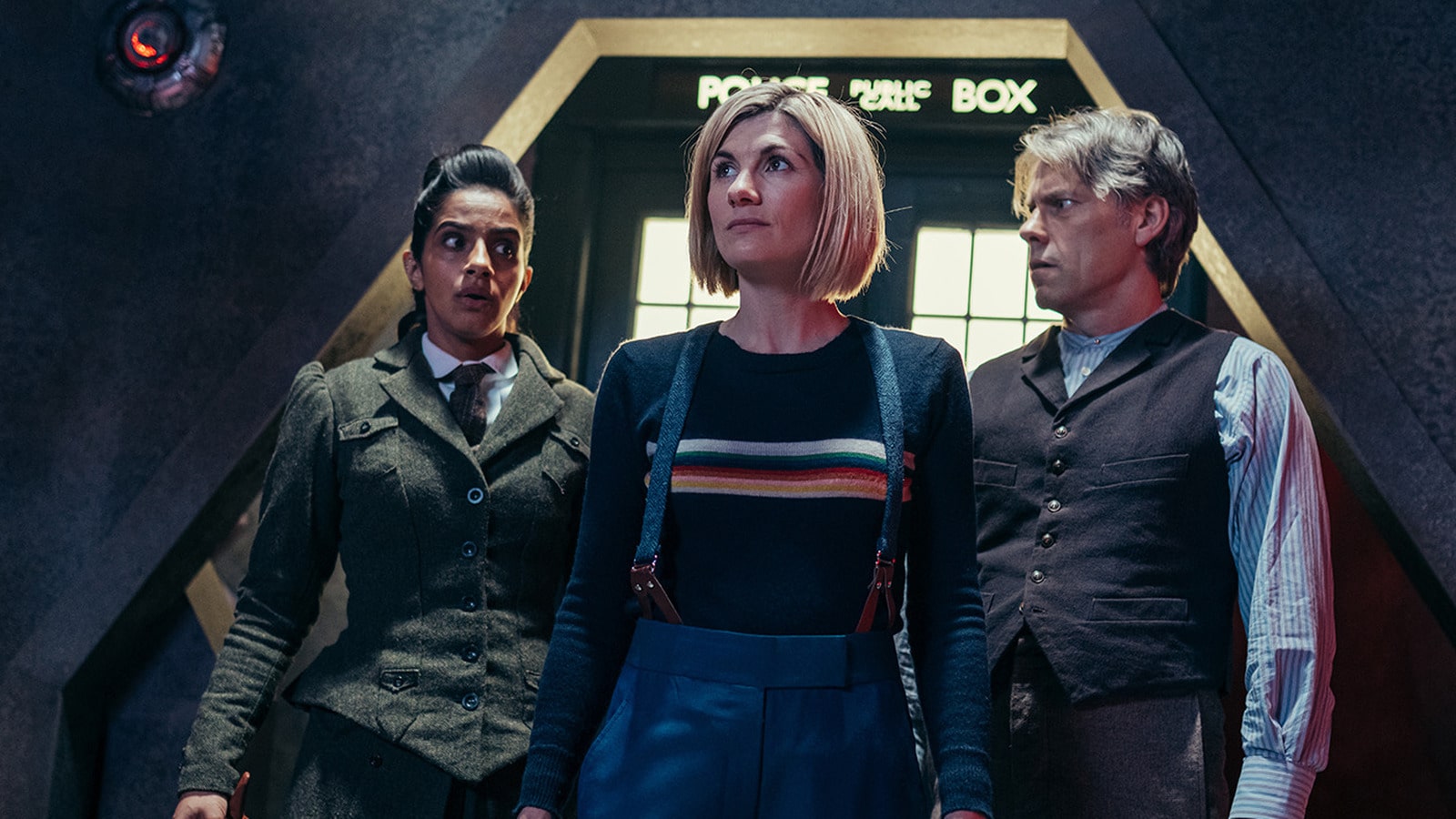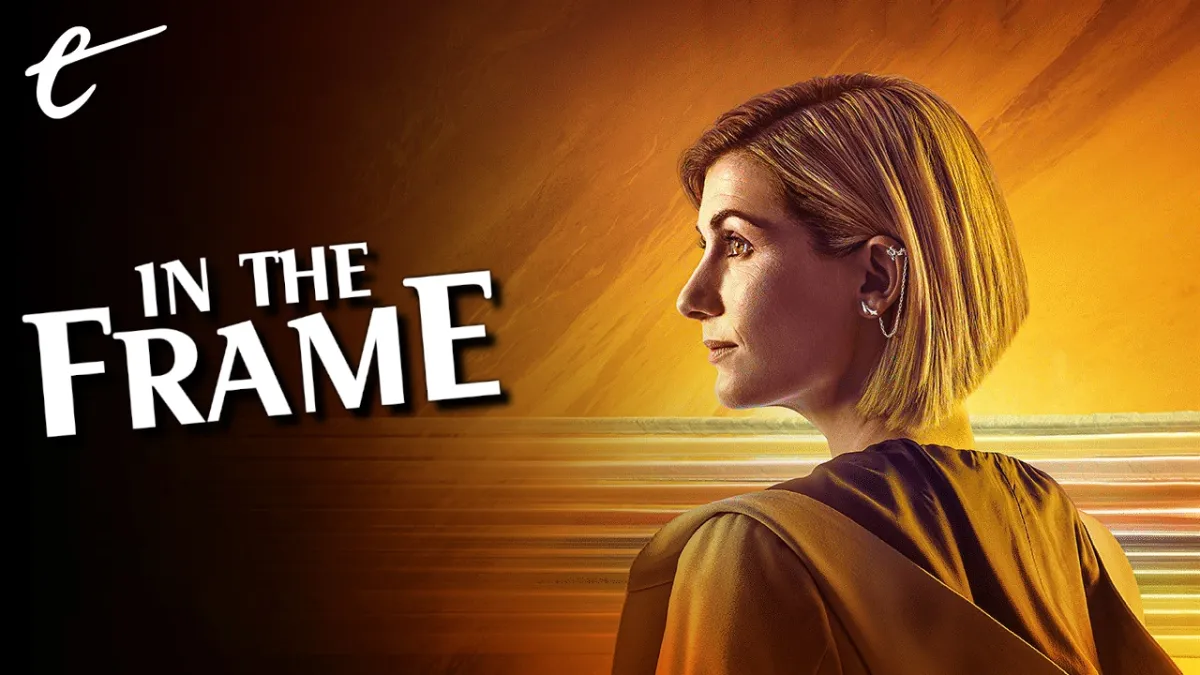With the broadcast of “Legend of the Sea Devils” last weekend, the Chris Chibnall and Jodie Whittaker era of Doctor Who is just a single episode away from its conclusion.
There are a lot of things to discuss about Chibnall’s tenure as showrunner: the extent to which it is mired in nostalgia and ties back to the show’s earliest days, the fact that it is the most conservative era of Doctor Who in over three decades, the way in which Chibnall pushed the show to compete with more generic Netflix-era science fiction, the question of the era’s legacy and the challenges facing Chibnall’s successor. However, there is one question that towers above all: What’s it all about?
Nobody can run a television show for nearly five years and over three broadcast seasons without making something resembling a coherent statement. Whether articulated in the stories or simply simmering through the recurring themes, what is it that makes Chris Chibnall’s vision of Doctor Who stand apart from what came before and what will follow? The obvious answer here is his change to the show’s central mythology, “the Timeless Child,” but that is just a narrative gimmick.
As with every major intellectual property out there, a lot of the discussion of Doctor Who gets lost in arguments about whether the modern era is “the best ever” or “the worst ever.” In the interest of digging into the show’s recent history, it is probably best to set aside arguments over quality. What is this version of Doctor Who actually saying about the world in which it exists? More than that, what does it say about the show’s central character?
One of the most significant aspects of Chibnall’s tenure has been the return of the so-called “celebrity historical,” in which the Doctor (Whittaker) meets a famous historical figure. There were a handful of examples in the classic series, but Russell T. Davies popularized them in the revival. He had the Doctor (Christopher Eccleston, David Tennant) team up with Charles Dickens (Simon Callow), Queen Victoria (Pauline Collins), William Shakespeare (Dean Lennox Kelly), and others.

Chibnall’s predecessor, Moffat, featured appearances from Winston Churchill (Ian McNeice) and Vincent Van Gogh (Tony Curran) in his first season, but then he largely abandoned the template. Moffat even seemed to affectionately mock the concept towards the end of his tenure, having the Twelfth Doctor (Peter Capaldi) meet fictional characters like Robin Hood (Tom Riley) or Santa Claus (Nick Frost). In contrast, Chibnall has played the celebrity historical remarkably straight.
While the show has featured male historical figures like King James I (Alan Cumming), Nikola Tesla (Goran Višnjić), and Lord Byron (Jacob Collins-Levy), Chibnall has been particularly interested in the history of female historical figures like Rosa Parks (Vinette Robinson), Ada Lovelace (Sylvie Briggs), Noor Inayat Khan (Aurora Marion), Mary Shelley (Lili Miller), and Madame Ching (Crystal Yu). The show has earned considerable credit for bringing attention to oft-overlooked female figures.
Chibnall’s era has generated a much broader interest in history as a whole, in particular taking the show to times and places that it has largely ignored to focus on more familiar narratives. “Rosa” took the show to the Deep South during segregation. “Demons of the Punjab” took the show to the borders of India and Pakistan during partition. “Legend of the Sea Devils” took the show to 19th century China. These were unusual settings for the show.
In some ways, this is the flipside of Chibnall’s fondness for 1960s Terry Nation-inflected science fiction plotting in adventures like “The Ghost Monument.” It is perhaps a return to the original mandate of Doctor Who to serve as an educational program that might encourage its audience’s curiosity about the world. The Doctor arguably hasn’t traversed this much of the globe since the show’s earliest days, when stories like “Marco Polo,” “The Aztecs,” and “The Crusade” were quite common.

Naturally, these stories place a lot of emphasis on the idea of preserving the timeline, and for good reason. It would be tasteless for Doctor Who to tell a story where the Thirteenth Doctor helps Rosa Parks end racism, or where Noor Inayat Khan goes on to have a series of madcap adventures traveling through time. The Doctor is very dogmatic about her role as observer. She sees her responsibility as to “keep history in order.”
It’s worth contrasting this with how previous showrunners dealt with the importance of preserving history. In “The Unquiet Dead,” Rose (Billie Piper) insists that the Ninth Doctor (Eccleston) can’t resettle an alien species on 19th century Earth. He counters, “Time’s in flux, changing every second. Your cozy little world can be rewritten like that.” In “Fires of Pompeii,” even realizing the destruction of Pompeii is a “fixed point,” the Tenth Doctor (Tennant) still manages to save a single family.
Moffat mocked the self-importance of even grappling with questions like that. In “Let’s Kill Hitler,” the Eleventh Doctor (Matt Smith) mocks an alien species that developed time travel just to go back and visit historical traumas to hold those responsible to account. “You got yourselves time travel, so you decided to punish dead people?” he taunts. The Moffat era sees it as the most boring use of the show’s central conceit. Unlike the TARDIS, these time tourists are literally smaller on the inside.
“Let’s Kill Hitler” teases a variation on the classic “Hitler time travel dilemma,” only for the Doctor to literally lock Hitler (Albert Welling) in a closet and engage with a completely different story. It mocks how cynical it would be to exploit historical trauma for earnest entertainment. As if to illustrate the point, the Thirteenth Doctor makes her companions complicit in systemic racism in “Rosa” and wipes the mind of a woman who will die in a concentration camp in “Spyfall, Part II” to preserve history.

This obsession with preserving the status quo at any human cost extends beyond the show’s renewed interest in historicals. Traditionally, the Doctor has been able to change the world in episodes set in the present and future, toppling prime ministers in stories like “The Christmas Invasion” and “Last of the Time Lords” and witnessing (or participating in) the overthrow of corrupt futuristic societies in stories like “Planet of the Ood” or “Oxygen.”
The Thirteenth Doctor is a largely passive character, who seems unable or unwilling to effect any meaningful change to the worlds in which she finds herself. In both “Arachnids in the UK” and “Revolution of the Daleks,” industrialist Jack Robertson (Chris Noth) escapes scot-free despite being implicated in disasters that killed multiple people. At the end of “Spyfall, Part 2,” after assisting an alien species in an attempted invasion, tech mogul Daniel Barton (Lenny Henry) just… walks away.
Critics like Kelly Connolly have praised the show for allowing the Doctor to embrace a radical form of “helplessness,” tapping into the sense of powerlessness that many people in both the United Kingdom and the United States felt when the show was airing. That said, it is perhaps unfortunate that Chibnall should choose this characterization for the first female incarnation of the character. Still, there’s an argument to be made for this approach to the character.
“Demons of the Punjab” might be the best story of the Chibnall era, in large part because it articulates this worldview. In this story, the Doctor is haunted by visions of the Thijarians, an ancient race that “evolved themselves into the deadliest assassins in the known universe.” However, at the climax of the episode, it is revealed that the Thijarians have transformed themselves into a race of witnesses. “This is now the Thijarian mission, to bear witness to those alone,” they explain.

The Thijarians are in some ways a metaphor for the Doctor herself. In previous lives, the Doctor was presented as an apocalyptic force. She was known as “the Oncoming Storm.” She was a force of nature that would “drop out of the sky and tear down your world.” She was not so different from the Thijarians. The implication of the larger Chibnall era seems to be that the Doctor has been transformed. She is no longer a force of nature, but instead an observer and a witness.
In some ways, this ties back to the earliest days of the show, when the TARDIS was compared to a television set. After all, the Doctor moving between stories is akin to channel-hopping. Stories like “The Three Doctors,” “Carnival of Monsters,” and “Vengeance on Varos” have all used television as a metaphor for the show. Perhaps the Thirteenth Doctor is an attempt to literalize that, to embrace the idea of the character as a window, teaching the audience the importance of bearing witness.
A lot of social change can begin with radical acts of empathy, of being willing to listen to and observe the experience of others. Part of being a good ally to those who need support is in simply paying attention. There is a reason some people are so scared of educational reading lists that include books written by minorities. In this way, perhaps Chibnall is trying to make the Thirteenth Doctor a good ally, even if she occasionally relapses and genocides the Daleks or the Cybermen or the Sea Devils.
However, there is more to it than that. It often feels like the Thirteenth Doctor makes a conscious choice to embrace inaction. “The systems aren’t the problem!” the Doctor declared in “Kerblam!,” an episode in which she actively saves a giant futuristic corporation transparently modeled on Amazon. The episode doesn’t shy from acknowledging the horrors of working at such a company. It’s just that the Doctor no longer seems particularly concerned with that sort of human suffering.

The Thirteenth Doctor’s most frequently recurring threat seems to be the idea of chaos and the breakdown of the established order. In the miniseries Flux, the title phenomenon is presented as the embodiment of chaos spreading through the cosmos. In “Legend of the Sea Devils,” the Doctor is less concerned that Marsissus (Craige Els) plans to wipe out mankind and more that he hopes “to create chaos.” The Doctor sees herself “sorting out fair play throughout the universe.”
In Moffat-era episodes like “The Beast Below,” “Kill the Moon,” or “Thin Ice,” the characters would often find themselves offered a choice: They could preserve the status quo built on the suffering of others, or they could take a risk by releasing that trapped creature. In each case, the correct choice was the one that didn’t justify the death or suffering of an innocent creature to preserve the status quo. Chibnall’s era seems diametrically opposed to this.
“Demons of the Punjab” remains the era’s best episode because it understands that this attitude comes from a place of privilege. There, the Doctor argues for the preservation of history because any change might erase her friend Yaz (Mandip Gill) from existence. “We can’t have a universe with no Yaz,” the Doctor states. It is an honest admission that this push to maintain a status quo makes sense to those with a stake in it. The Doctor has the luxury of leaving Rosa Parks and Noor Inayat Khan to their battles, because they’re not her battles.
This inability to imagine a new or better world extends to smaller character dynamics. In “Legend of the Sea Devils,” the Doctor confesses to Yaz that she cannot break her toxic patterns of behavior — behavior that the show suggests she learned from her own mentor Tecteun (Barbara Flynn). “I can’t fix myself to anything, anywhere, or anyone,” she admits, although Whittaker pauses her delivery after “I can’t fix myself.” It’s a shame, given how hard the Twelfth Doctor worked to do just that.
The net result of all this is that Chibnall’s Doctor Who rejects any idea that things can get better, that systems or even people can be improved. Instead, Chibnall’s Doctor Who fights for the preservation of the status quo. In summing up the tenure of producer Barry Letts and script editor Terrance Dicks, critic Paul Cornell would famously quip that they “exiled the Doctor to Earth and made him a Tory.” If that’s the case, maybe Chris Chibnall just made her a cop. She has the police box.





